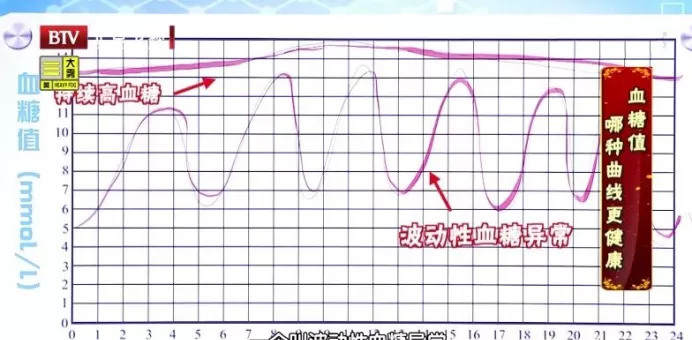In the blink of an eye, the Spring Festival holiday is over! For sugar friends, regular living, adequate sleep and good mood are the basis for maintaining blood sugar stability. During the Spring Festival, relatives and friends gather together, eating and sleeping irregularly, which may cause blood sugar fluctuations and aggravate the condition. Therefore, after the festival, sugar friends must not forget to maintain a normal life schedule, and those that have been disrupted should be adjusted as soon as possible. Today we will talk about how to adjust blood sugar after the holiday.
Strengthen blood glucose monitoring and pay attention to blood glucose fluctuations
Fluctuating blood glucose abnormalities are more dangerous than persistent hyperglycemia! Blood glucose fluctuations accelerate the occurrence and development of atherosclerosis in diabetic patients, causing lesions of large blood vessels and microvascular diseases throughout the body.

Therefore, after the holiday, we should increase the frequency of blood glucose monitoring, do seven blood glucose monitoring every 7 days (see the 7 time points in the figure below), see if your blood glucose fluctuations are large, and make adjustments in time.
Normal blood glucose is less than 6.1 mmol/L on an empty stomach and less than 7.8 mmol/L 2 hours after a meal. The value is best fluctuated in two dotted lines, the difference between the highest and lowest value of blood glucose in a day should not exceed 4.4 mmol/L, and the fasting blood glucose control of adult diabetic patients should be controlled at 4.4-7.0 mmol/L, and the postprandial should not exceed 10mmol/L.
For patients with newborn diabetes, the course of the disease is short, there are no complications, and the maximum blood glucose in one day is best controlled within 8mmol/L. Blood glucose control should be highly individualized, and elderly patients and patients with serious complications can be appropriately relaxed. Never compare yourself to others.
If there is too much blood sugar fluctuation after the holiday, it is necessary to strictly control the diet and exercise: the diet should be based on beans, vegetables, and whole grains, rich in carbohydrates and fiber, or add some dietary fiber supplements, which can effectively control postprandial blood sugar fluctuations. People with diabetes who exercise regularly help stabilize blood sugar, but the intensity of exercise is too intense, and blood sugar can fluctuate greatly due to changes in hormones in the body. The diet and exercise techniques mentioned before the Spring Festival (blood sugar stabilization tips, blood sugar stabilization tips two) also apply.
Good sleep habits, smooth control of blood sugar
Poor sleep quality is common in people with diabetes. Sleep disorders can directly affect glucose metabolism disorders by influencing insulin sensitivity, glucocorticoid release, and sympathetic activity, and may indirectly lead to poor glycemic control by influencing drug adherence, exercise, diet, and psychological factors including mood and fatigue.
If there is an increase in fasting blood glucose after the holiday, and the blood sugar fluctuates greatly, you can see if you have poor sleep.
Maintaining a good work and rest requires attention:
(1) It is best to go to bed on time every night, try to sleep before 10 pm, and wake up on time in the morning. If you don't get up on time in the morning and take medicine for breakfast, your blood sugar routine throughout the day will be disrupted.
(2) Playing with mobile phones before going to bed will not only destroy sleep, but also cause sleep delays, causing difficulty falling asleep, resulting in frequent waking up at night. Moreover, the blue light of many electronic devices can change the release of melatonin, causing the biological clock to be deranged and reducing the quality of sleep. It is recommended not to look at the phone 1 hour before going to bed.
(3) Keeping the room dark while sleeping may help sleep.
(4) Patients with poor sleep quality can also consider some sleep assisted devices such as brain health instruments to improve sleep and eliminate symptoms related to neurasthenia and brain fatigue.
After excluding diet, exercise, sleep, mood and other factors, if the blood glucose fluctuations are still very large, you can consult your diabetes guidance doctor, under the guidance of the doctor, scientifically choose hypoglycemic drugs according to the characteristics of blood glucose fluctuations, such as long-acting insulin analogues can alleviate fasting blood glucose fluctuations, acarbose, glinide, rapid-acting insulin analogues, etc. can reduce postprandial blood glucose fluctuations, sulfonylurea hypoglycemic drugs have the risk of increasing hypoglycemia, which can lead to increased blood glucose fluctuations.
Written at the end: Generally people with good blood sugar control have a good mentality and will not fluctuate too much in their mood. Even if there are difficulties, they will be solved with a positive and optimistic attitude. Diabetes is no longer an incurable disease, it is preventable and treatable and reversible, sugar friends can actively consult the doctors around them to reverse diabetes as soon as possible and return to normal life. The beauty of life is not in the disease itself, but in the way you treat him!